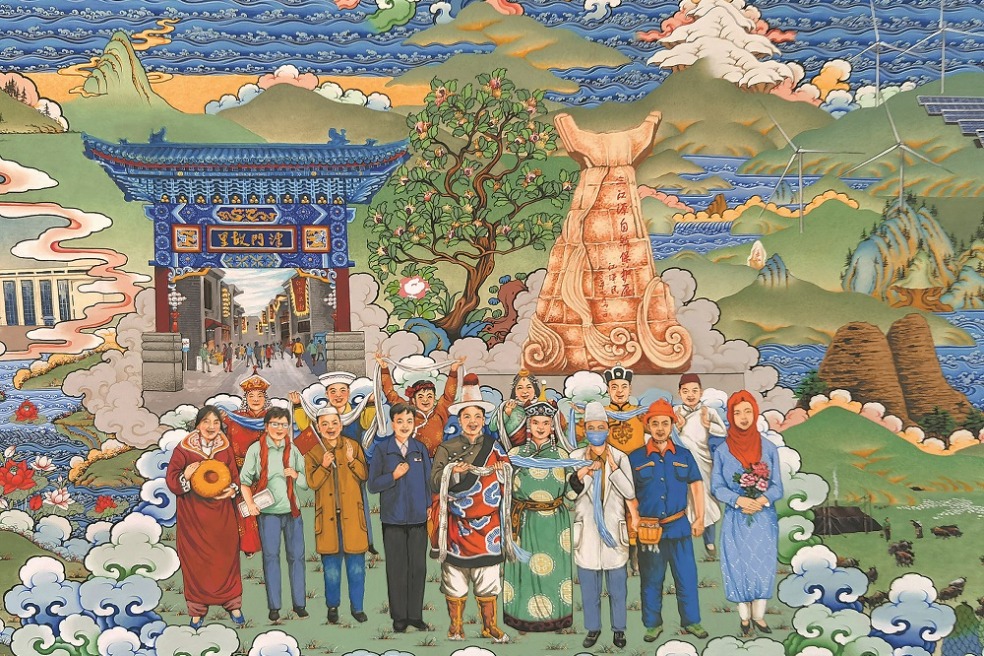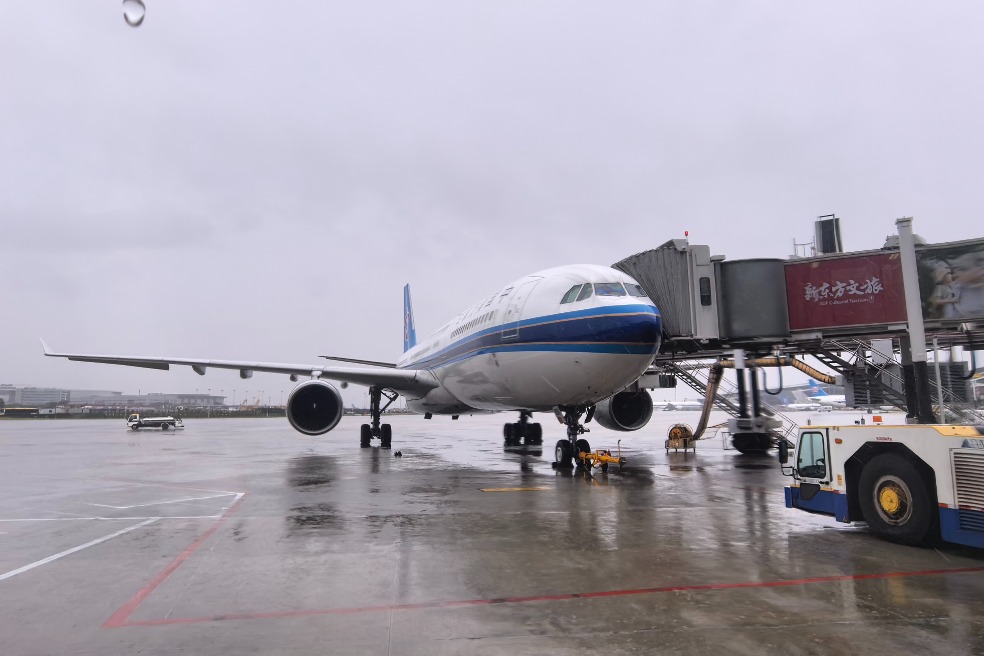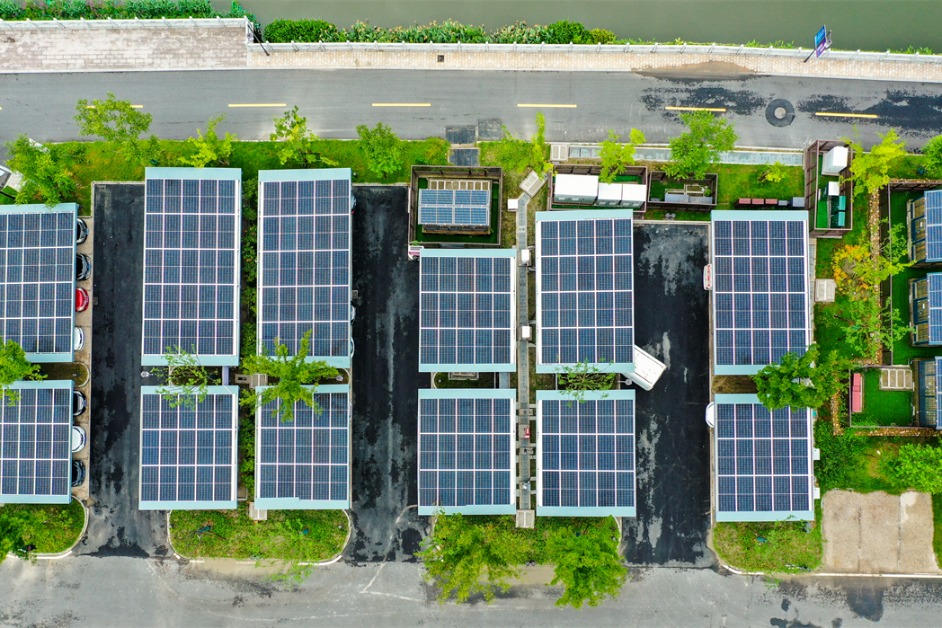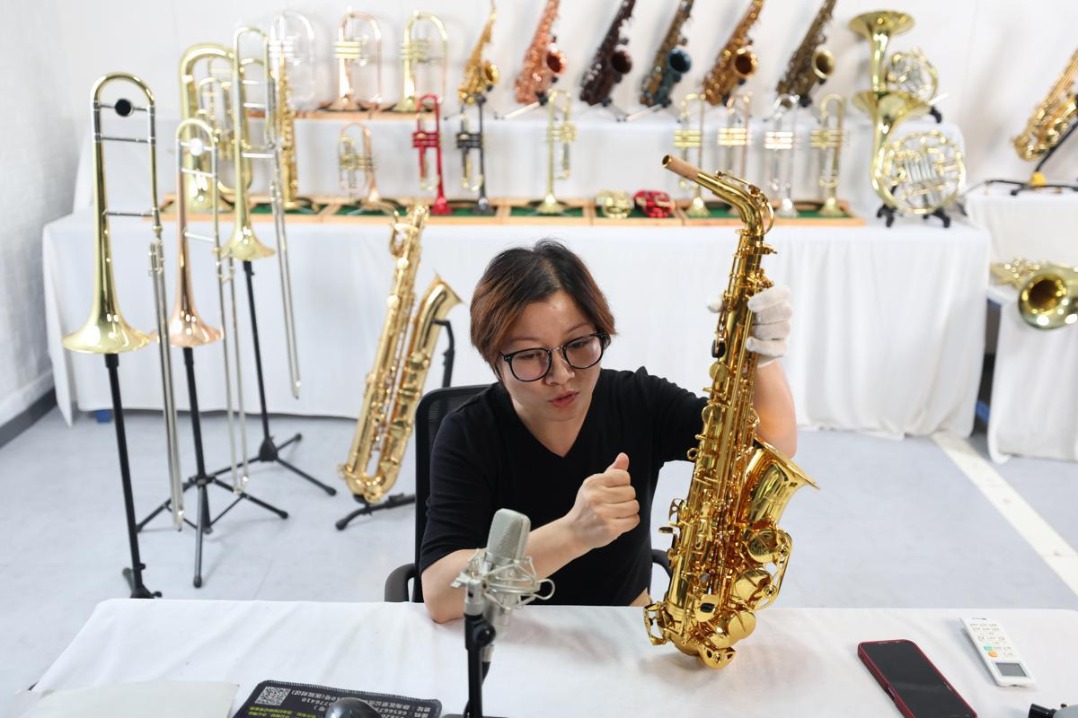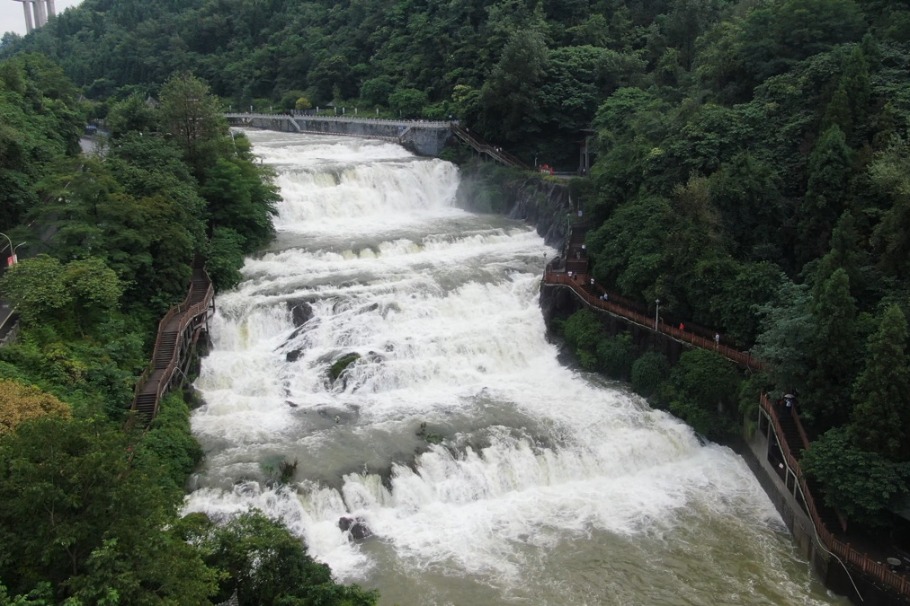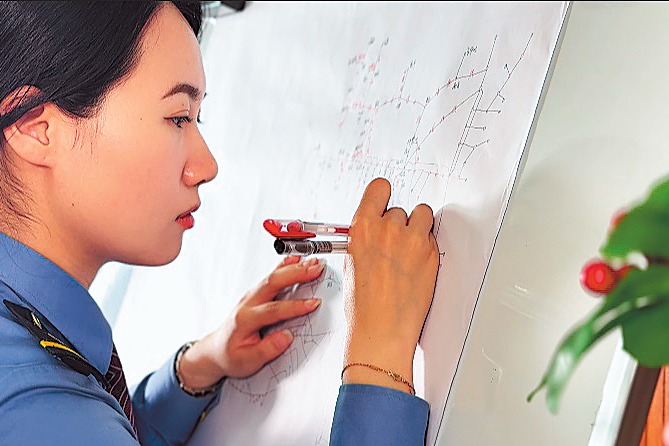DPP fails in attempt to oust opposition lawmakers
Island leader Lai Ching-te faces public backlash over actions not in people's interests

Editor's note: The Taiwan question is a key focus for China and the international community. China Daily is publishing a series of reports to track hot Taiwan-related topics and address disinformation from the Democratic Progressive Party administration.

The failure of the recent recall vote targeting opposition lawmakers in Taiwan showed that the ruling Democratic Progressive Party's separatist stance and disregard for people's livelihoods have resulted in its losing people's support, experts said.
Recall votes against all of the 24 lawmakers from the main opposition Chinese Kuomintang, and the mayor of Hsinchu City, who was previously a member of the smaller opposition Taiwan People's Party, on July 26 failed to pass. Seven additional KMT lawmakers are set to face recall votes on Aug 23.
The unprecedented wave of recall campaigns, initiated by civic groups backed by the DPP this year, aimed to unseat 31 of 39 directly elected KMT lawmakers, to help the DPP, which held a legislative majority from 2016 to 2024, regain control of the house.
In the 113-seat local legislature in Taiwan, the opposition parties currently hold a narrow majority — 52 members from the KMT, 51 from the DPP, eight from the TPP and two independents — a key obstacle for the DPP and its leader Lai Ching-te to pass bills.
Zou Zhiqiang, deputy secretary-general of the United States-based Alliance for China's Peaceful Reunification, said the DPP's rush to initiate recall campaigns to replace opposition party representatives long before their four-year terms are up shows a lack of respect for public opinion.
The decision to pursue a costly recall vote that wasted public resources and divided the society, and not focusing on disaster relief efforts after a recent typhoon in southern Taiwan, has alienated some of the DPP's traditionally strong supporters, Zou said.
He said the recent vote results dealt a significant blow to the DPP and indicate that Taiwan people no longer believe in the DPP's rhetoric of "confronting the mainland to protect Taiwan".
Chen Binhua, a spokesman for the State Council's Taiwan Affairs Office, said the DPP's crushing defeat in the vote fully demonstrated that its political manipulation and "anti-China" approach for seeking separation went against mainstream opinion and were rejected by the vast majority.
The DPP authorities' indifference and a slow and inadequate response to disaster relief after the typhoon last month have once again exposed their true colors of prioritizing political interests, he said.
Public dissatisfaction
Taiwan residents flooded island leader Lai's Facebook page with dissatisfied comments recently after the US announced a 20 percent tariff on most of Taiwan's exports to the country.
Jaw Shaw-kong, a Taiwan political commentator, asserted in a Facebook post that Taiwan's economic momentum will be greatly impeded as the tariff rate is higher than Japan's and South Korea's 15 percent, which are key competitors against Taiwan's exports.
Jaw criticized the DPP authorities for selling out the island's pillar industry by allowing TSMC to invest in the US, and by making military purchases from the US, but not receiving weapons.
With the new Taiwan dollar surging by 12 percent against the US dollar and the 20 percent tariff added, the overall impact will reach 32 percent, posing a significant challenge for Taiwan businesses, he said, expressing concerns over more promises the DPP authorities may make to the US.
The Labor Party in Taiwan issued a statement condemning the Lai administration for sacrificing enterprises and traditional industries in order to realize its attempt of relying on the US to seek "independence", resulting in the island having to fully satisfy unreasonable demands imposed by the US.
The party expressed people's concern that the DPP's approach risks Taiwan becoming a tool of US hegemony, being manipulated by US politicians and arms dealers, and ultimately leading to a dangerous situation in Taiwan.
On July 31, the Formosa Publishing poll in Taiwan revealed a significant decline in Lai's trust and satisfaction ratings, marking troubling new lows for his administration. The comprehensive survey was conducted from July 28 to 30.
Lai's satisfaction rating has plummeted from 44.7 percent in June to 34.6 percent, while dissatisfaction has surged dramatically from 46.8 percent to 56.6 percent. His trust rating has also suffered dramatically, falling 7.8 percentage points to 37.2 percent since June, while distrust has increased by 7 percentage points to 50.3 percent.
The polling data reflects growing public skepticism about his effective leadership and political direction. The survey reveals that 54.9 percent of respondents do not support Lai's bid for reelection in 2028.
Speaking of those elections on the island, Zou said there is a strong possibility of cooperation between the opposition parties of the KMT and the TPP, with better chances of winning compared to the past.
The DPP has been obstructing cross-strait exchanges to prevent Taiwan residents from recognizing the Chinese mainland's progress, he said, adding that if the opposition regains power, there will be increased exchanges, fostering better understanding, ultimately benefiting peaceful reunification between the two sides.
Attempts doomed to fail
Officials from Beijing have issued a stern warning to the Lai administration that any attempt to solicit external support for "Taiwan independence" is doomed to fail.
The comments followed a report by the Financial Times on July 29, revealing that Washington informed Lai that he would not be allowed to "transit" in New York on his way to South America, where he was reportedly planning to visit Paraguay, Guatemala and Belize in August.
While Lai's office had not formally announced his trip to Latin America, it said last week that he had canceled all overseas travel plans to concentrate on tariff negotiations with the US and relief efforts following the typhoon.
Foreign Ministry Spokesman Guo Jiakun underscored that China firmly opposes any form of official interaction between the US and the Taiwan region and firmly opposes any trip by the leader of the Taiwan region to the US in any name or under whatever pretext.
Guo said the Lai Ching-te authorities' separatist provocations will lead nowhere, still less shake the solid and strong international commitment to the one-China principle or stop the overriding historical trend toward China's reunification.
Chen, from the Taiwan Affairs Office, also denounced Japan for allowing Lin Chia-lung, the head of Taiwan's so-called foreign affairs department, to make a so-called private trip to Japan and meet with Japanese politicians recently.
Japan bears serious historical responsibilities to the Chinese people due to its colonial rule over Taiwan, Chen said, urging Japan to learn from historical lessons and cease erroneous actions.
"Eighty years ago, we defeated Japanese invaders and restored Taiwan. Today, any attempt for 'Taiwan independence' that relies on foreign forces is pure delusion and will only end in even more failure," Chen warned the DPP authorities.
Q&A
Q: What is the status quo of the Taiwan Strait?
A: The real status quo of the Taiwan Strait is that both sides of the Taiwan Strait undoubtedly belong to one and the same China, although they have fallen into a long-term special situation of political confrontation left by China's civil war and interference from external forces. During the decades after 1949, the Taiwan authorities adhered to the position that Taiwan is a part of China.
In 1971, the 26th Session of the General Assembly of the United Nations adopted Resolution 2758 with an overwhelming majority. This resolution confirms that Taiwan is a part of China and precludes the possibility of "two Chinas" or "one China, one Taiwan". A total of 183 countries in the world have already established and developed diplomatic relations with China on the basis of the one-China principle. The fact that there is only one China is widely recognized by the international community as the real status quo of the Taiwan Strait, which proves that the one-China principle is an irresistible trend and is in line with the principle of righteousness and the common aspiration of the people.
Q: What is the biggest threat to peace and stability in the Taiwan Strait?
A: The biggest threat to peace and stability in the Taiwan Strait comes from the "Taiwan independence" separatist activities and the connivance and support of external forces. Since assuming power, the Democratic Progressive Party authorities in Taiwan have been pursuing the "Taiwan independence" agenda, using unscrupulous methods and seriously jeopardizing the interests and well-being of Taiwan compatriots. Still lost in delusions of hegemony and trapped in a Cold War mindset, certain countries do their utmost to undermine and suppress China, using the Taiwan question to contain China. This poses a significant threat to regional and global peace and is the fundamental reason for the continued tension in the Taiwan Strait and the long-standing unresolved nature of the Taiwan question.
The Taiwan question is an internal affair of China, which should be resolved by the 1.4 billion Chinese people across the Taiwan Strait themselves. To support "Taiwan independence" is to interfere in China's internal affairs, and to connive at "Taiwan independence" is to undermine the stability of the Taiwan Strait. China's adherence to the one-China principle, its opposition to and containment of "Taiwan independence", and its pursuit of national reunification are the righteous moves to safeguard the post-World War II international order and defend the basic norms of international relations.
These questions were answered by Xiao Junzheng, China's ambassador to Israel, initially in The Times of Israel.
zhangyi1@chinadaily.com.cn
















